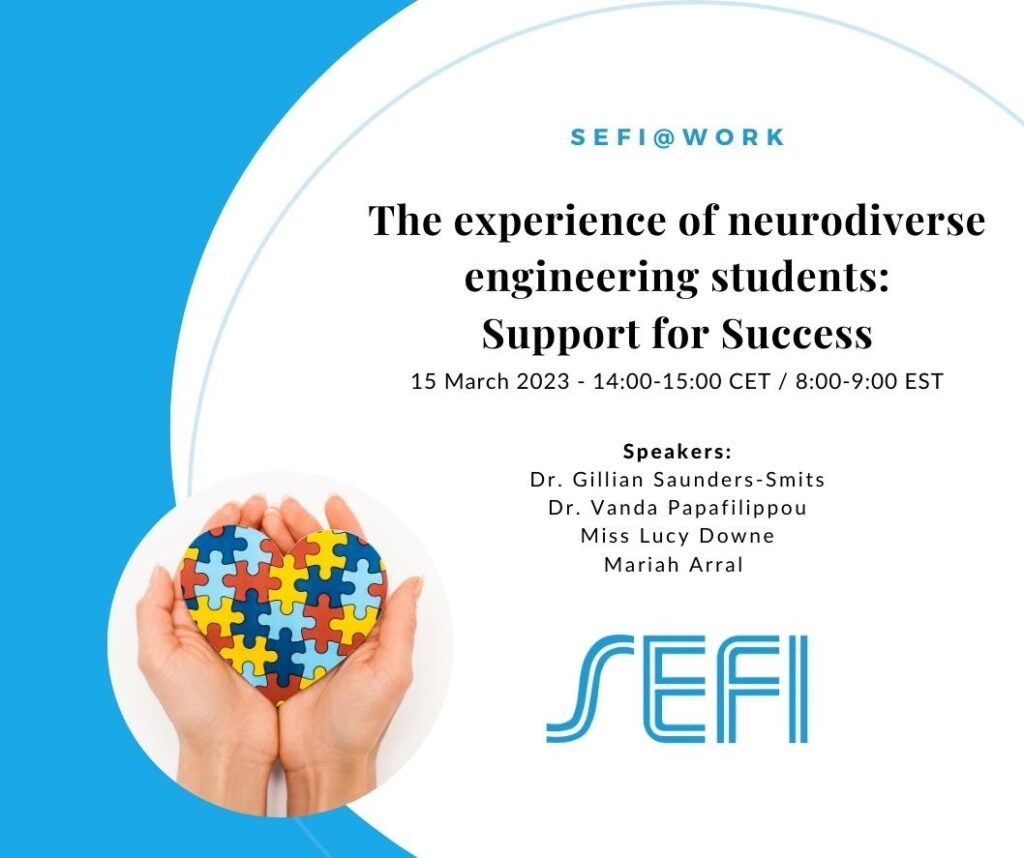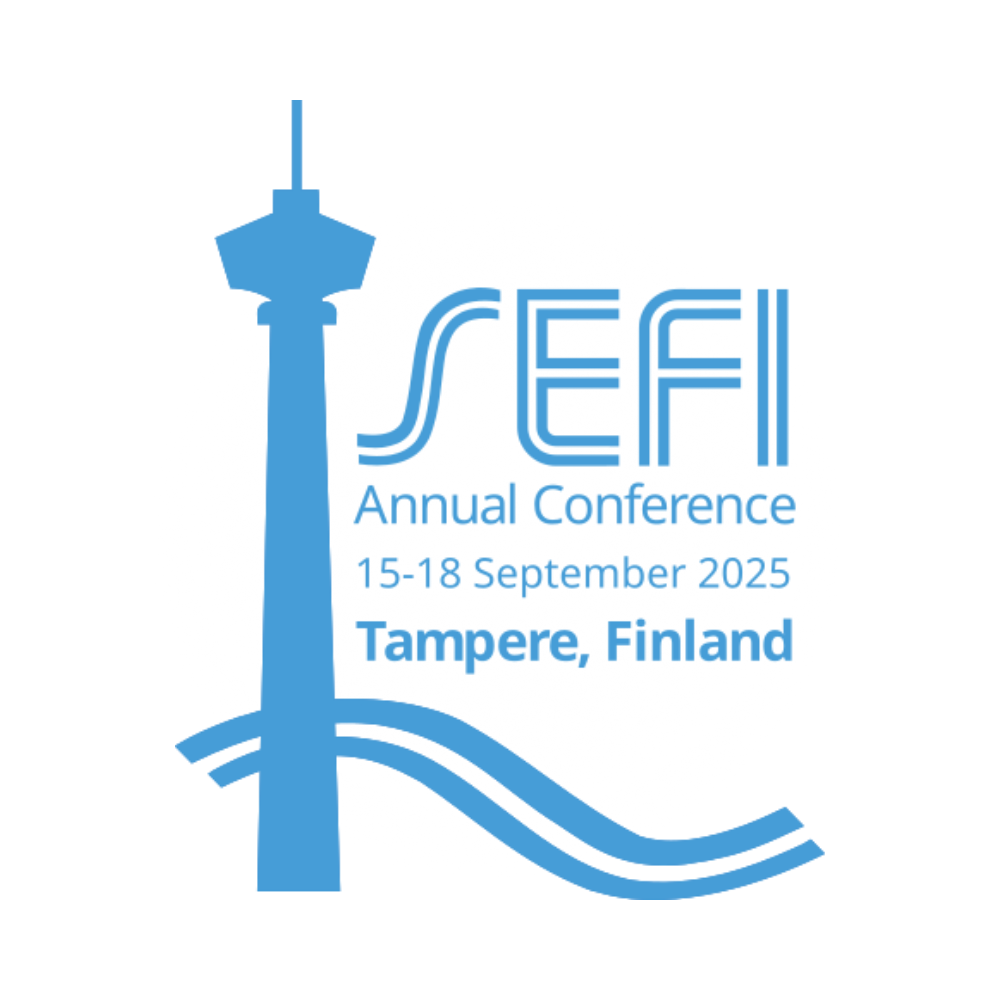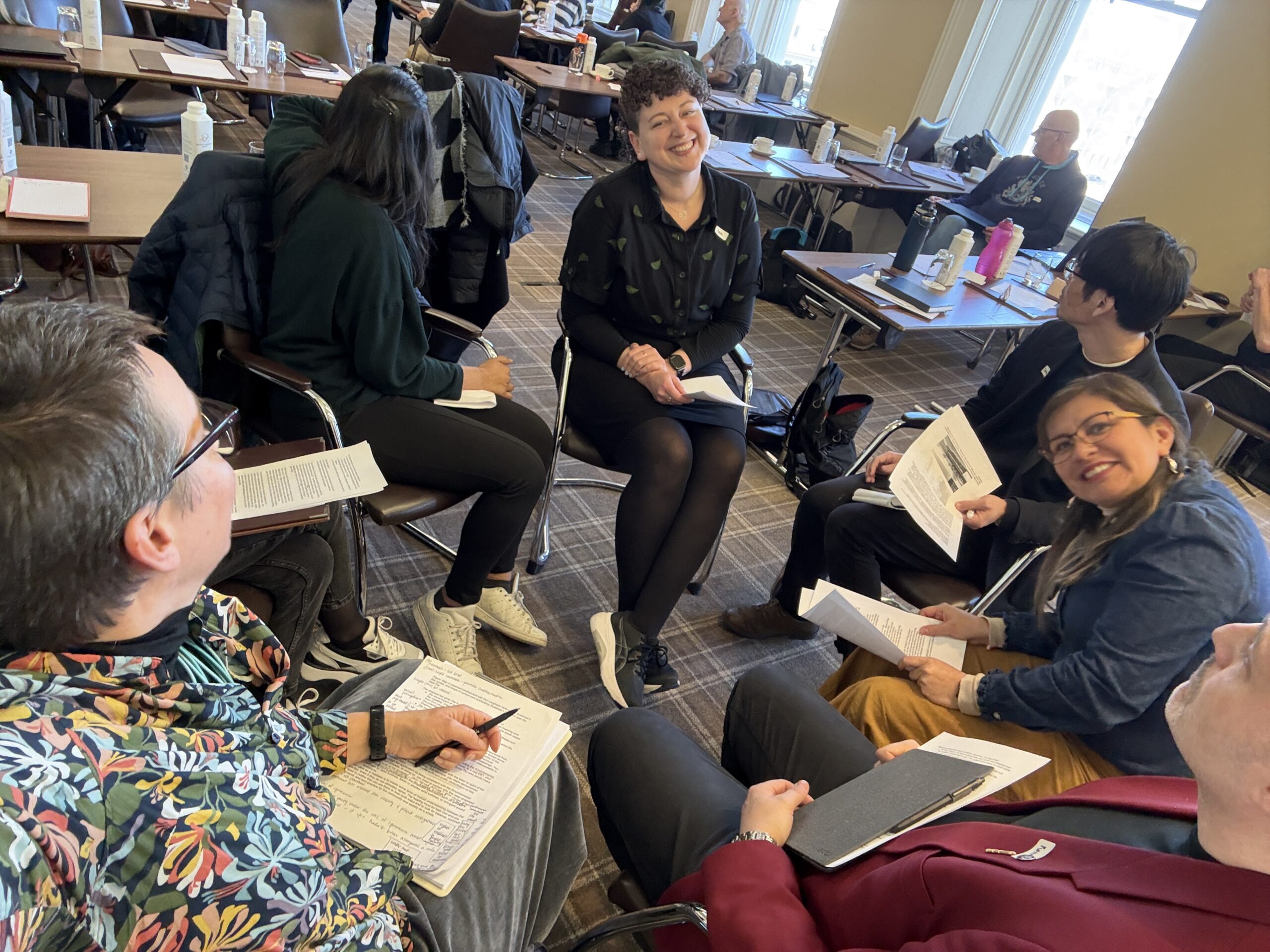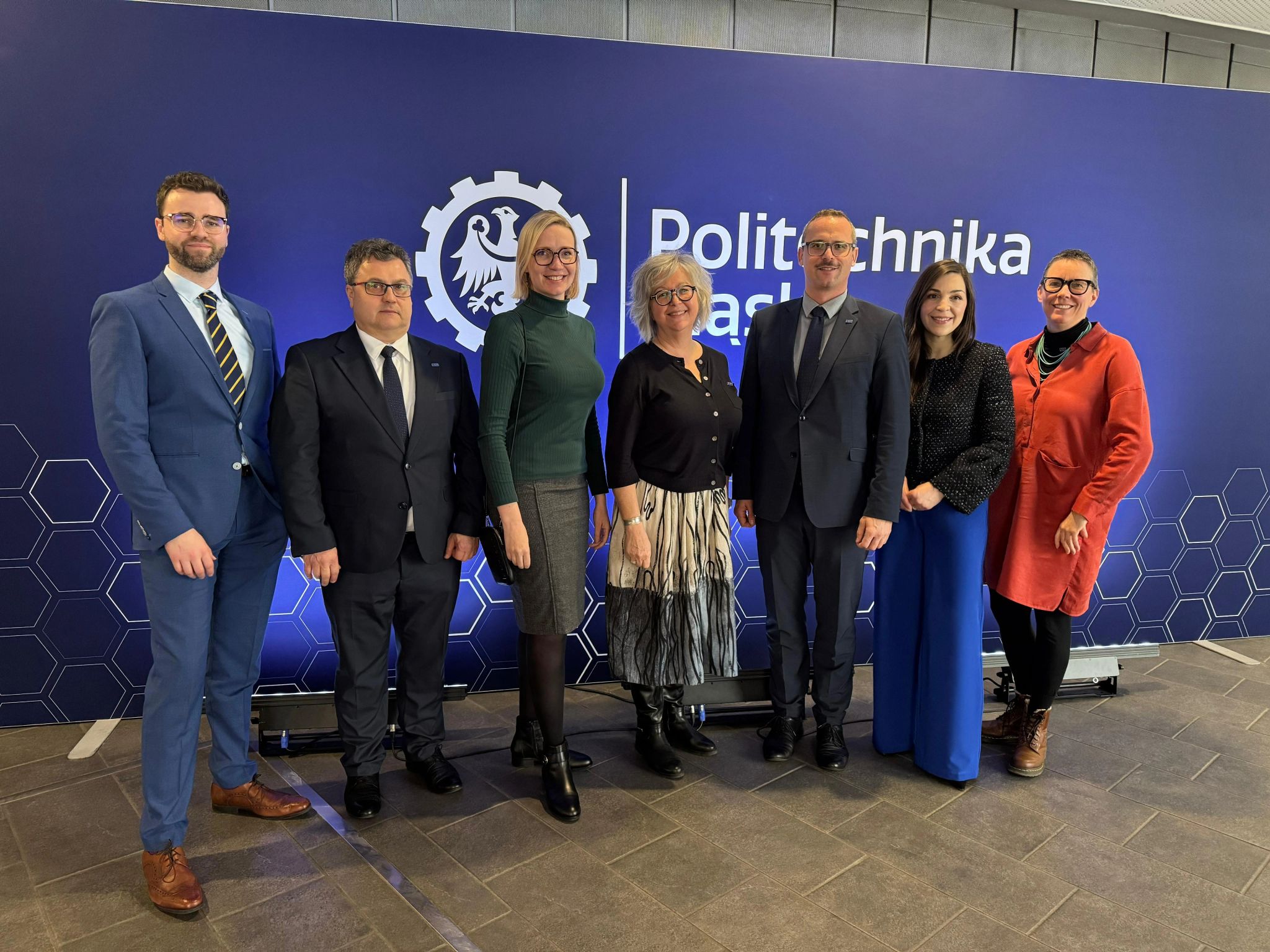We are excited to announce that registrations for the 53rd SEFI Annual Conference are now…
Diversity, Equity, and Inclusion SIG and Engineering Skills SIG

The event will be held on 15th of March 8:00-9:00 EST/14:00-15:00 CET during Neurodiversity Celebration Week (https://www.neurodiversityweek.com/) which takes place from 13th-19th March 2023.
The webinar will consist of three 15-minute talks with a panel session to conclude.
In recent years the number of engineering students with non-visible disabilities (NVDs) such as ADHD and ASD have increased. These students face many barriers, for example, bias around decisions regarding accommodations (Druckman, Levy, & Sands, 2021); dependence of grades on suitability of reasonable adjustments (Singer, Golan, Rabin & Kleper, 2020); stigma over disclosure of disability (Pearson Weatherton, Mayes, & Villanueva-Perez, 2017); and a disability employment, retention and progression gap (Pearson Weatherton, Mayes, & Villanueva-Perez, 2017). There is also insufficient academic training and understanding of how disabilities affect learning and academic performance, and staff attitudes toward disability support have been shown to have a direct impact on academic success (Pearson Weatherton, Mayes, & Villanueva-Perez, 2017).
These issues are compounded by the learning experience within HE, which varies substantially from that within schools in which learning is often highly structured. At the same time there is shift in pedagogical approaches used within engineering education (Dusek, Faas, Ferrier, Goodner, Sarang-Sieminski, Waranyuwat, & Wood, 2018) and a higher degree of unstructured time and informal instruction. In comparison, existing accommodations developed for traditional learning environments and it is unclear whether reasonable adjustments allow students to develop the professional skills (e.g., flexibility, executive functioning) increasingly required by engineering employers. This alongside, the non-academic factors which may affect disabled students, may result in lower levels of self-efficacy and reduced outcomes, particularly with respect to employability, this reducing the potential for the profession to benefit from their abilities which include strong divergent thinking, creativity, innovation and risk-taking (Hain, Turek, Esmaili Zaghi, & Hain, 2017)
In this session, we will discuss the unique perspectives that neurodiverse students can bring to engineering, how they experience engineering education, and ways in which we can support them.
Speaker information
Dr. Gillian Saunders-Smits, Delft University of Technology, The Netherlands
Neurodiversity – the inclusiveness vs. labelling paradox
One of the primary drivers in the inclusion of neurodiverse students and staff is that in an ideal world their study and work environment is designed in such an inclusive way that no special allowances are needed and that they are just seen as part of the normal variation in human brains. (Or in engineering terms: a population with a normalized standard deviation of 0.5.) A utopia of a truly inclusive and healthy work environment.
However, generally inclusion does not work like this yet today. The Neurodiverse often first have to run into problems, then get a formal diagnosis (label), and subsequently have to “come out” as neurodivergent in order to convince the rest of the (neurotypical) world they need a more inclusive environment in order to continue to function or worse they need (expensive) individual reasonable adjustments. As a result of this lack of inclusiveness the number of neurodiverse students and staff in academia needing additional support is on the rise and the availability of such support and the willingness of organisations to recognise these support needs is under considerable strain.
In this talk Gillian Saunders-Smits (herself neurodivergent) will talk about the need to be more inclusive in education and work environments in the first instance, why academia needs to be more inclusive from the get-go and what its long term benefits are for all.
Dr Vanda Papafilippou & Miss Lucy Downes, University of West England (UWE) Bristol
Exploring the experience of neurodivergent engineers in the workplace
The neurodiversity paradigm views neurodiversity as natural variations in human cognition that should be equally valued and celebrated (Chapman, 2022) thus challenging earlier research (and practice) that tended to take a deficit perspective and referred to ADHD, Autism, Dyslexia, Dyscalculia, etc. as disorders that needed to be ‘treated’ (Chapman and Bovell, 2022). Nevertheless, despite the increased awareness of the strengths of neurodivergent thinking and the value that diverse perspectives can bring to organizations (Kirby and Smith, 2021), neurodivergent people may experience discrimination and marginalization once disclosing to their employer (Baldridge and Swift, 2013; Johnson and Joshi, 2017). What is more, to date there is limited research that explores the perspectives of neurodivergent employees to gain an understanding of contextual factors that might create barriers in the workplace (Doyle and McDowall, 2021) but also about how neurodivergent people approach work in general.
For this reason, our exploratory study focused on how neurodivergent engineers (all sectors, including software) experience the entire employee lifecycle (i.e., recruitment, career development and progression). We chose to focus on engineering as anecdotally, there are many neurodivergent individuals in the profession as neurominority thinking strengths align to engineering skills, such as creative thinking and attention to detail (Engineering Council, 2022; Loiacono and Ren, 2018).
In this presentation we will be presenting our preliminary findings from the qualitative data (35 in-depth interviews) and highlight how neurodivergent engineers experience recruitment, career development and career progression and suggest some implications for practice for line managers and HR.
Mariah Arral, Carnegie Mellon Universit
Inclusive Mentoring Strategies for Neurodivergent Undergraduate Researchers in STEM
Mariah is a graduate research assistant who has recently published about the use of mentoring strategies for neurodivergent students. She believes undergraduate research opportunities improve retention, increase confidence, and supports better overall academic performance for underrepresented students in STEM. The neurodivergent community is often inappropriately perceived to have disadvantages associated with STEM-based research and face exacerbated challenges when pursuing undergraduate research with STEM faculty. Despite the increase in STEM students who report disabilities, few resources are available to train mentors to work within this population. In this talk, I will discuss our approaches to undergraduate mentoring strategies towards the neurodiverse student community conducting undergraduate research. Additionally, I will share ongoing research to understand and create best practices for mentoring while keeping neurodiversity in mind.
J Halpern, M Arral, J Gesun – 2022 ASEE Annual Conference & Exposition, 2022


